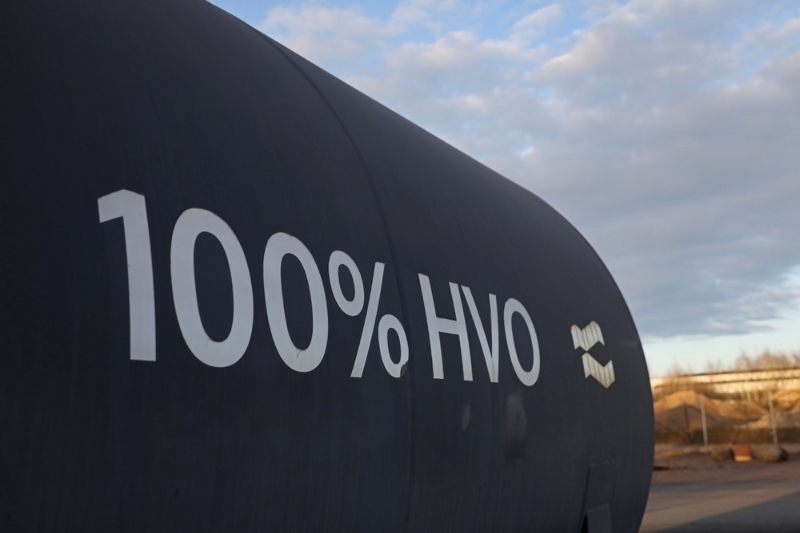A trial to power eight of South Cambridgeshire and Cambridge City’s bin lorries using biofuels has taken place – cutting their net carbon emissions by 90%.


Greater Cambridge Shared Waste, a partnership between South Cambridgeshire District and Cambridge City Councils, ran the eight vehicles on hydrotreated vegetable oil (HVO) instead of diesel over a two-month period.
Depending on the results of the trial, the councils could purchase further vehicles which could be powered by HVO as an interim solution ahead of more electric or hydrogen trucks joining the fleet.
It is estimated that using HVO results in a 90% reduction in net CO2 emissions when compared to running the same vehicles on normal diesel.
The trial comes just after the service’s second fully electric bin lorry entered service. The Faun Zoeller E-Rotopress, which has a revolving body to help compact waste, has been collecting waste from streets across the city and district since June 2022.
The E-Rotopress joined a Dennis Eagle eCollect, which was Cambridgeshire’s first 100% electric bin lorry and has been collecting recycling from Cambridge and South Cambridgeshire residents since November 2020. A third electric bin lorry is on order.
South Cambridgeshire District Council’s lead cabinet member for Environment, Cllr Brian Milnes, said: ‘Our Shared Waste Service continues to lead the way when it comes to transitioning waste collections to becoming cleaner and greener. Having had the first electric bin lorry in Cambridgeshire enter service in 2020, this was followed up by our second electric truck starting to collect waste just a few weeks ago. Hot on the heels of that is this trial of biofuel.
‘This type of fuel achieves an impressive 90% reduction in net carbon emissions when compared to diesel. We will now be analysing the results of the trial, and continuing to look at all the options as we work towards cleaner waste and recycling collections. Using this type of fuel could be a useful practical interim solution as we transition the fleet towards electric or hydrogen vehicles as the long-term aim.’
Cllr Rosy Moore, executive councillor for Environment, Climate Change, and Biodiversity for Cambridge City Council, said: ‘It’s clear just how much importance our waste service and the councils place on investing in new technologies and solutions to reduce our carbon emissions.
‘We are not prepared to simply continue running diesel trucks well into the future until the entire fleet is electric, and this trial of vegetable oil-based fuel provides a useful interim solution. We really are leading the way both locally and nationally as a waste collection service in doing everything we can to work towards our net zero carbon targets.’